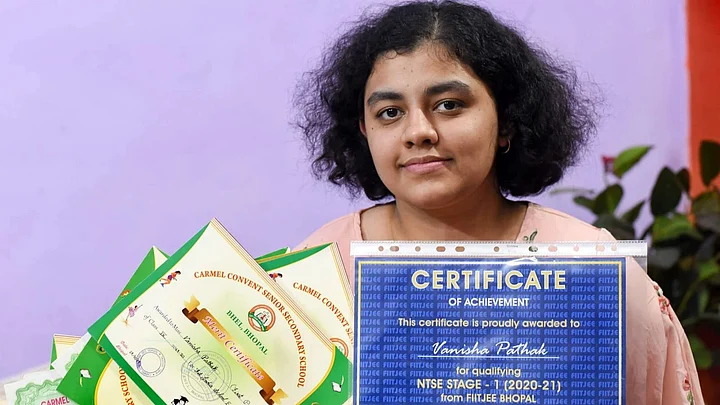Life Insurance Corporation (LIC)'s decision to send legal notices to 17-year-old Vanisha Pathak demanding repayment of a Rs 29 lakh loan taken out by her deceased father has caused an uproar.
Support has poured in for Pathak, whose both parents died in the horrific second wave of the COVID-19 pandemic that swept India in May 2021 – including from Finance Minister Nirmala Sitharaman, who asked the Department of Financial Services and LIC to look into the matter.
While LIC officials are now saying Pathak's request to deal with repayment after she turns 18 has been accepted and communicated to the family (which denies any such communication), a key question to be asked is: why is a child being asked to repay a loan taken out by their parent?
Here's what LIC can ask for, and the extent to which board-topper Vanisha and her brother Vivan are responsible for their parents' liabilities.
Can Children Be Held Directly Responsible for Parents' Liabilities?
The very basic answer to this is that the children themselves cannot be made to repay loans taken out by parents. There was a time when this was the case, for instance in places where begar systems existed, but the modern legal system does not allow for liabilities to fall upon a child of a debtor.
However, while a child can't be told to pay back a loan taken by a deceased parent directly, the creditor does have a right to seek repayment from the estate of a deceased (ie, the assets owned by the deceased prior to their death).
The children of the deceased (or other legal heirs) may be entitled to the deceased's assets as their inheritance, but the net value of the estate (from where the inheritance is taken) will be reduced by the liabilities of the deceased.
In England, the process by which the estate of a deceased is released to their legal heirs is such that the heirs don't get anything till all the liabilities and claims on the estate are dealt with.
In India, there are times when an heir can get access to the deceased's assets (whether money or property) even before things are settled, which may then require a creditor to reach out to the heir for repayment of what they're owed from the estate.
There is another significant claim that creditors can make which can affect the children of a deceased debtor. If the loan was secured with some form of collateral or other charge, the creditor can exercise their rights over the collateral or charge if the loan remains unpaid.
For instance, when it comes to a home loan, the property purchased using the loan can be claimed by the bank/lender if the debtor dies before the loan is paid off.
In the Pathaks' case, LIC is demanding repayment of Rs 29 lakh arising out of a home loan taken by the deceased parents. Vanisha and her brother are obviously not going to be able to pay this back at this time, unless their parents left them enough money to do so.
A failure to repay the loan amount technically grants the lender the ability to take over the property, since it is the effective security/collateral for the loan. This can obviously seem heartless, but it is not something illegal for the lender to do in general circumstances.
The most recent developments in the case do seem to give some hope that the children will not be deprived of their home – and they and other COVID orphans should also be able to rely on an order of the Supreme Court to avoid losing out on it or other assets of their parents.
Special Protections for COVID Orphans
In light of the special circumstances created by the pandemic, central and state governments have announced relief schemes for children who have lost one or both parents to COVID.
The Centre's scheme offers free education, a stipend from the age of 18 to 23, and a lumpsum of Rs 10 lakh when the children reach the age of 23, for those who lost both their parents or their primary caregiver to COVID.
However, these schemes do not protect children from creditors of their deceased parents, like LIC in the Pathaks' case.
Fortunately, the Supreme Court has taken up this issue as part of a wider suo motu case dealing with children in street situations.
Amicus curiae Gaurav Agarwal and the National Commission for Protection of Child Rights (NCPCR) informed the court in March of the danger of COVID orphans getting notices from banks/creditors for repayment of their parents' loans.
In response to this, the court passed an order on 4 April 2022 which says:
"The District Child Protection Officers and the District Magistrates concerned are directed to take the assistance of the District Legal Service Authorities to ensure that the properties of the deceased parents of the children are protected and that the children are not deprived of their properties."
District level authorities have therefore been directed to make sure that COVID orphans in their areas are not deprived of their homes or financial assets of their parents.
Local authorities have also been directed to make sure they upload details about all COVID orphans, including liabilities of their parents that could affect them, on the central government's Bal Swaraj COVID Care platform.
Any lenders who persist in chasing up on loans of a COVID orphan's deceased parents now face the possibility of contempt of court, and the children can approach legal aid services and the courts to ensure compliance and protection.
